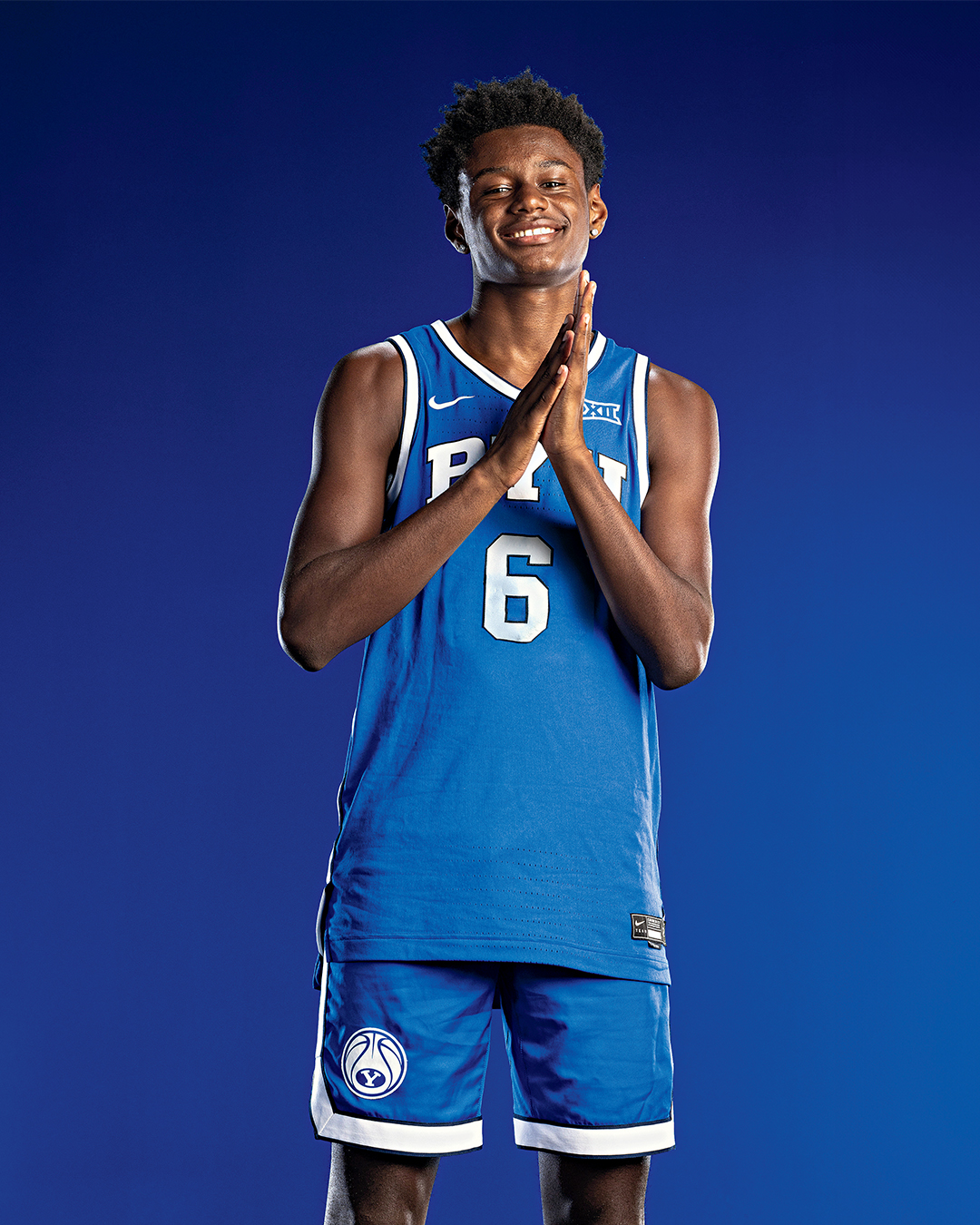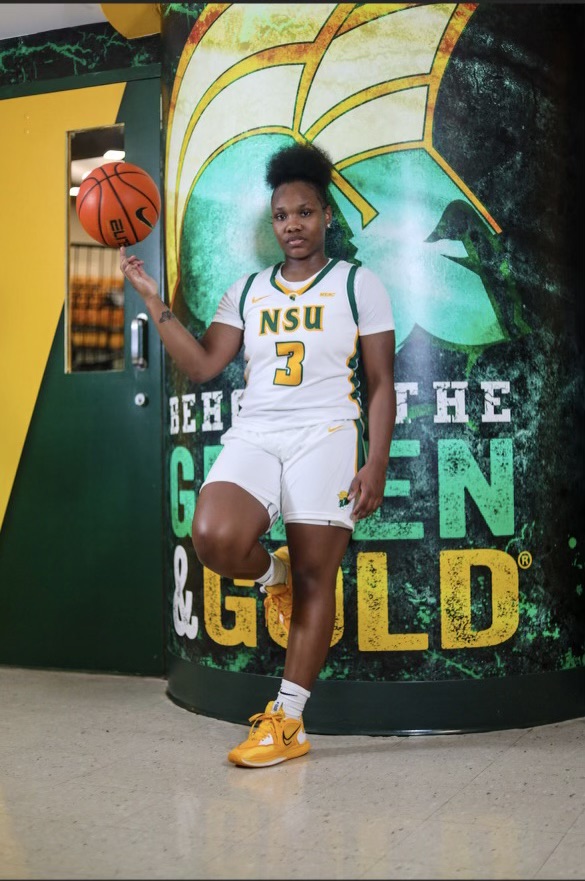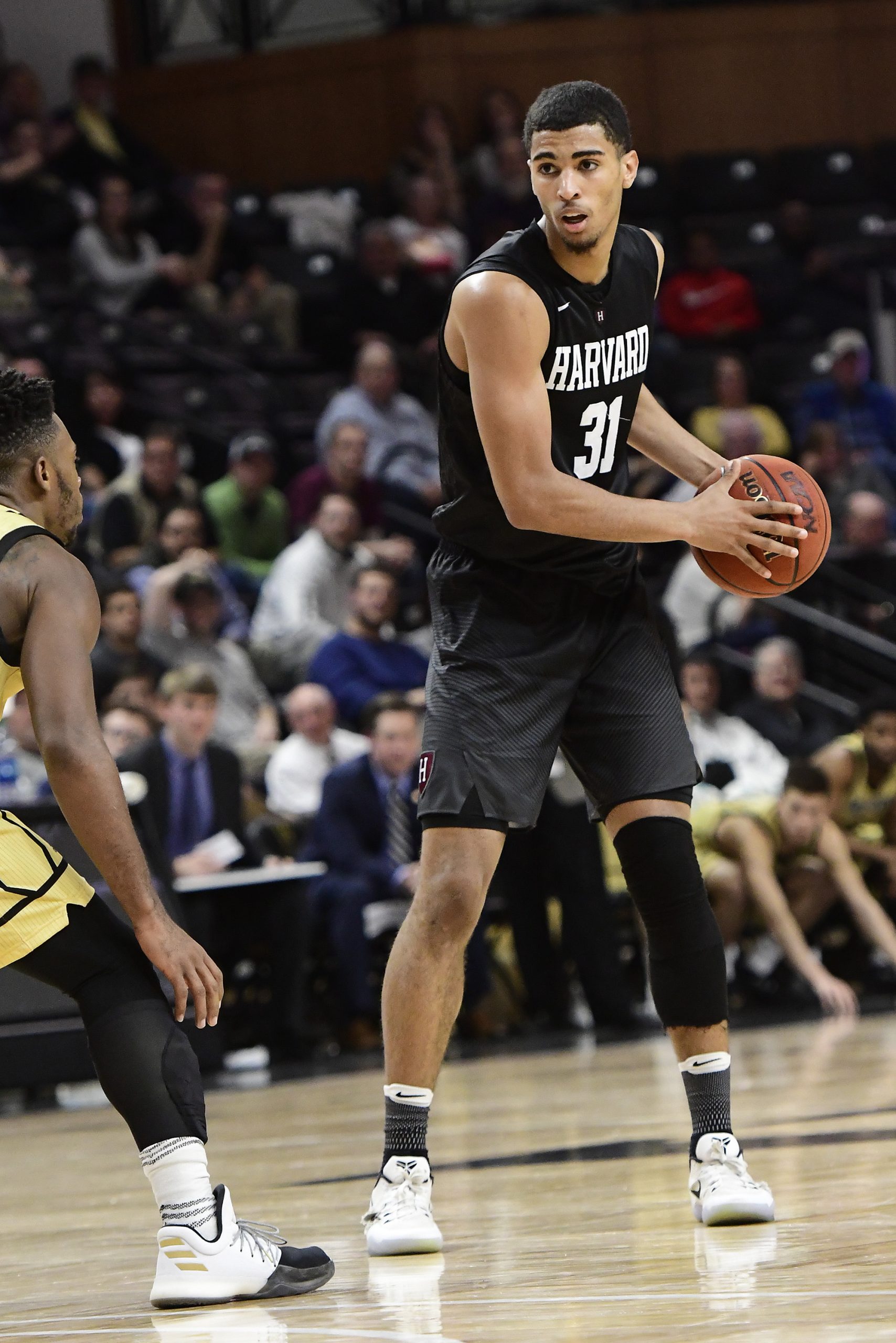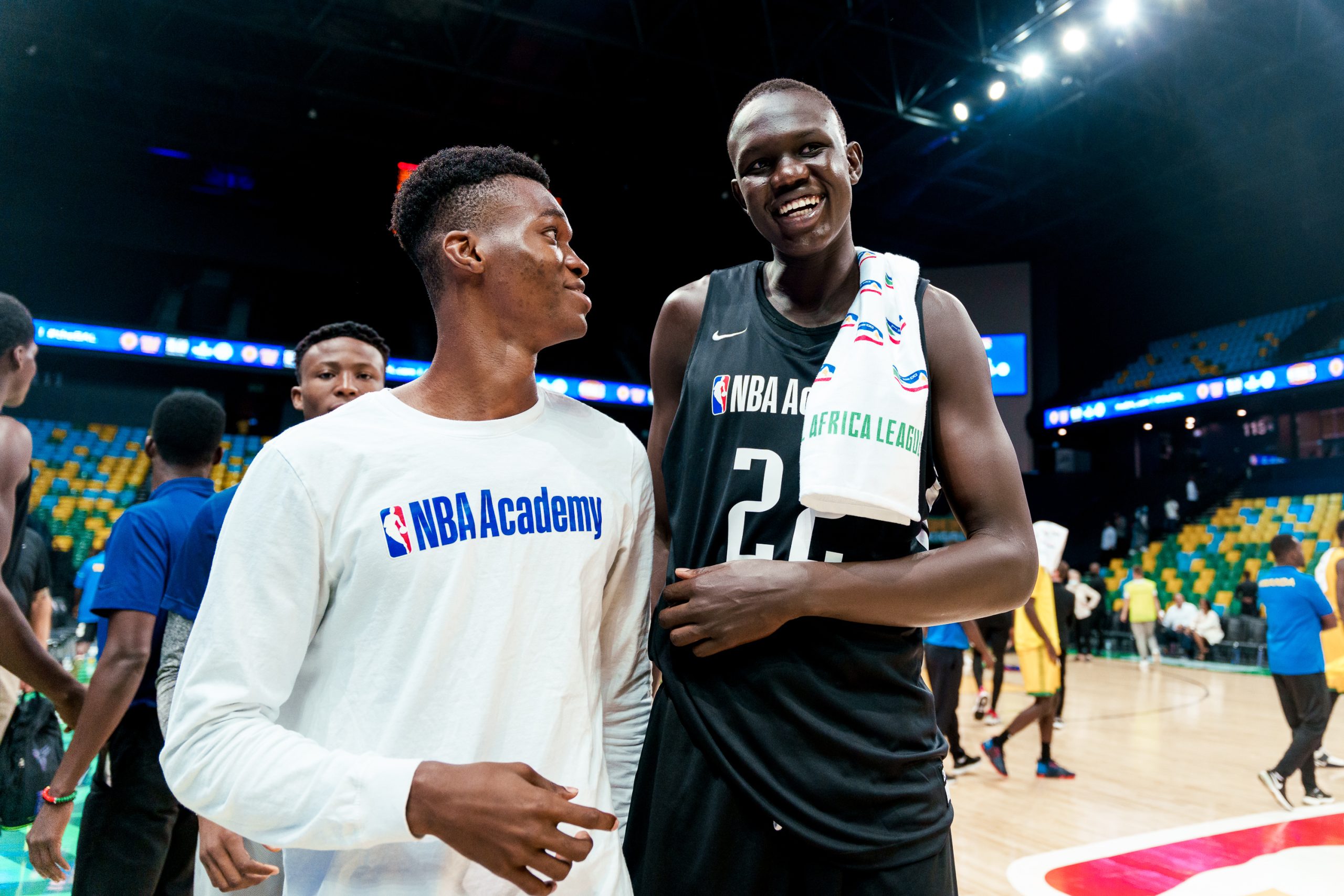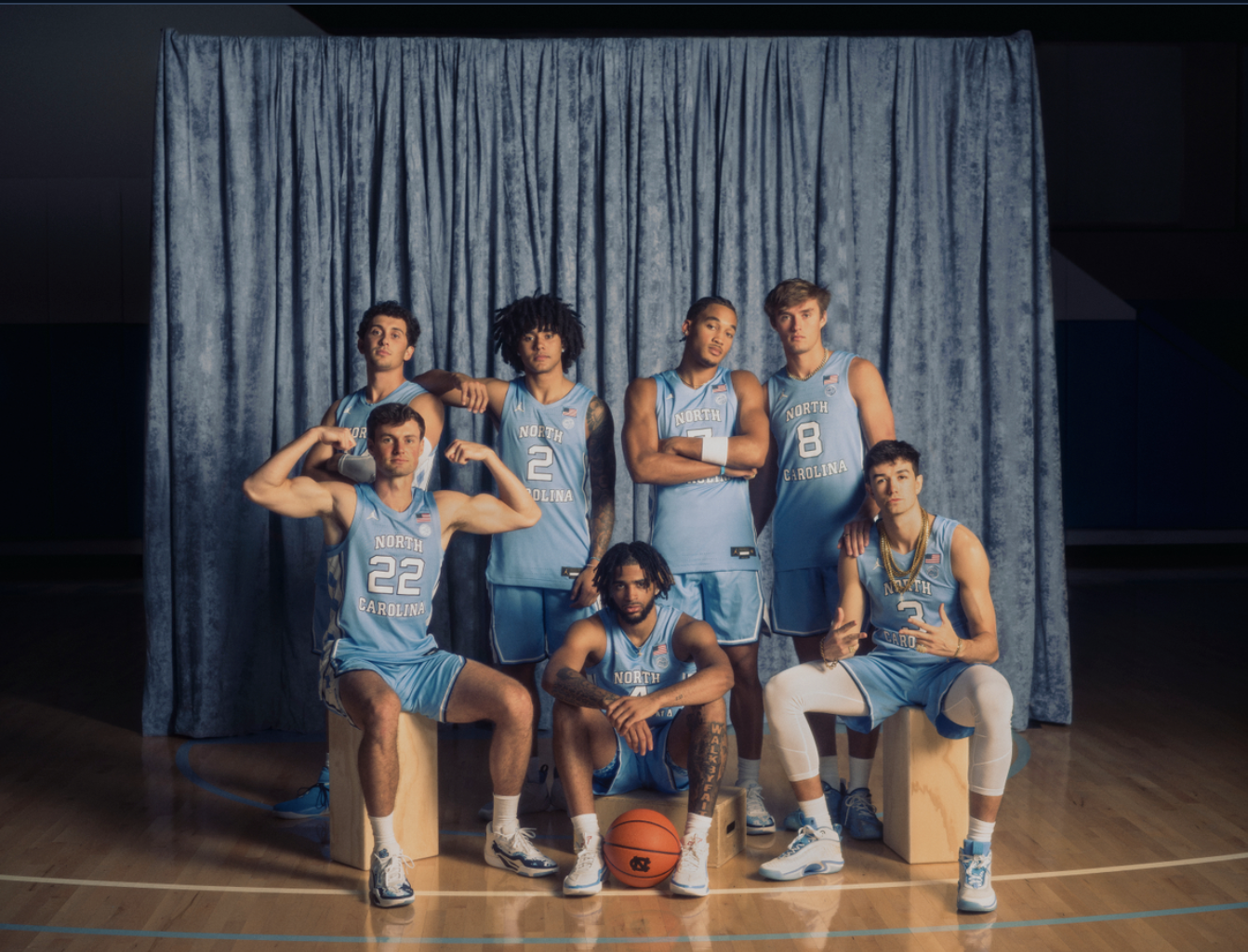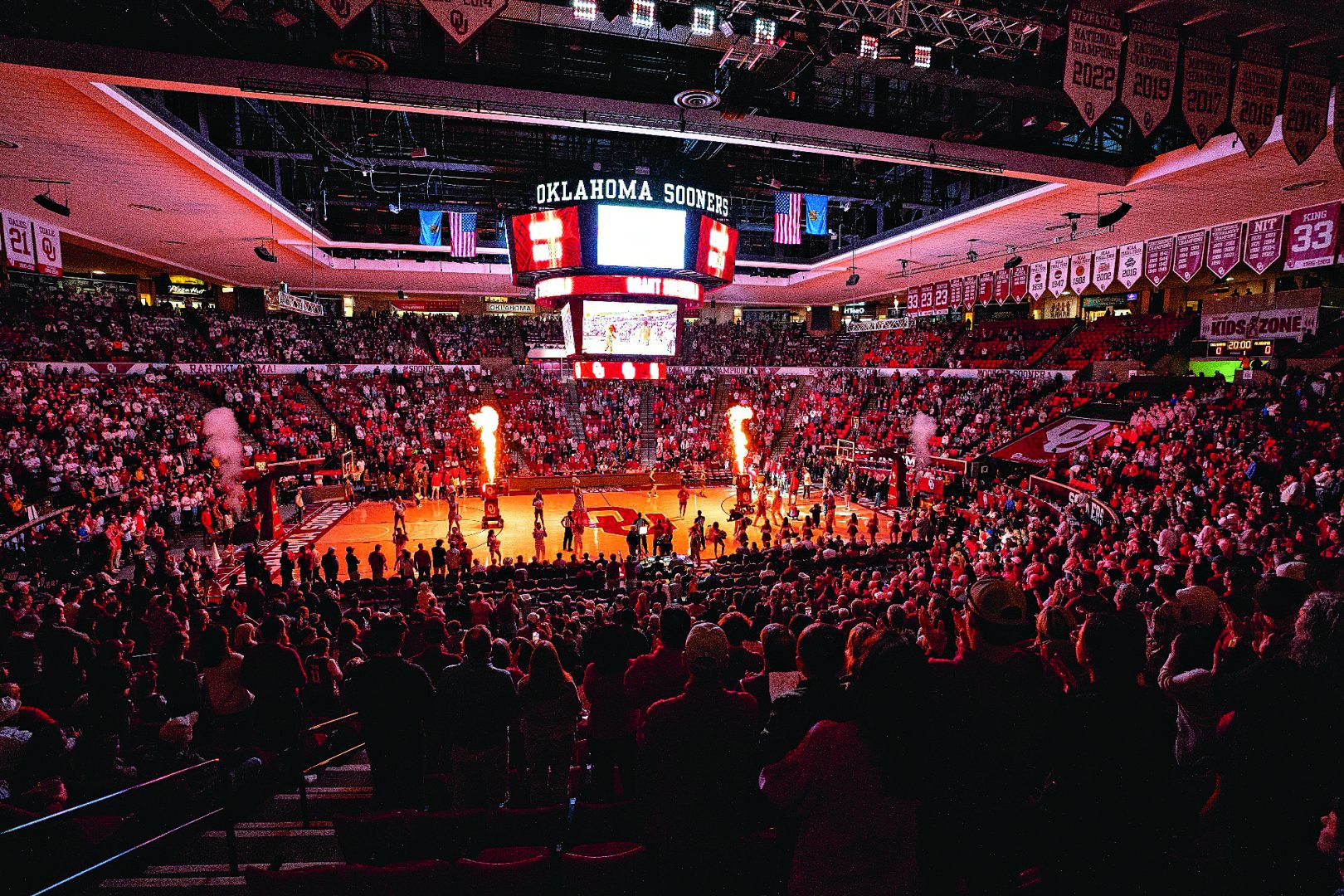Too white to be accepted by the Black kids, but too “cultured” to fit in with the white kids. That was the gray area where Justin Ruby, 24, felt he was in while growing up in York, PA, a...
Too white to be accepted by the Black kids, but too “cultured” to fit in with the white kids. That was the gray area where Justin Ruby, 24, felt he was in while growing up in York, PA, a small college town about two hours west of Philadelphia. As a result of his inability to fit in with his peers, Justin turned to art as an outlet. Justin’s been an artist his whole life but didn’t decide to pursue an art career until he had some push from teachers who realized he had the potential to do something special. And do something special, he did.
Today, Justin is widely known in the art world and recognized for his unique style of cutting up luxury items and retro Jordans and piecing them together in collages mixed with paint and other mediums. He went from selling his first piece of art for about $150 and now has pieces that sell for upwards of $15,000. For those looking to invest in something besides material items, stocks, cars, etc., rest assured that investing in a Justin Ruby piece is a safe bet. But money isn’t his motive, his contributions to the fabric of the world are much more heart-driven.
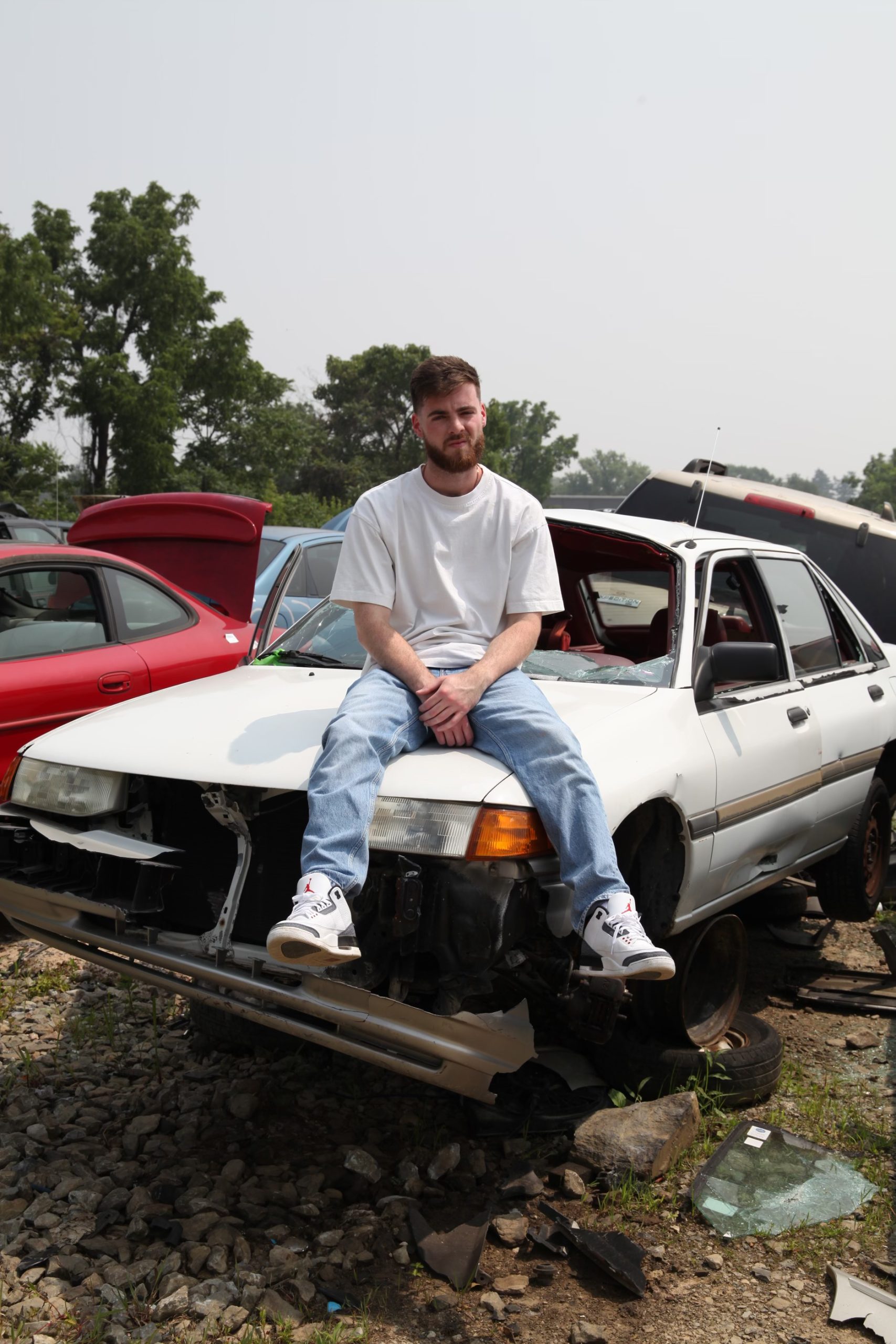
Justin’s art is keen on the most intricate details, not just in the visual components but also in the underlying storytelling. Each stroke of his brush and choice of materials is deliberate, weaving together emotions and narratives. From the delicate play of light on a subject’s face to the subtle symbolism embedded in the background, every element serves a purpose in the grand scheme of his creations. And while he’s not limited to one medium, the consistent theme on display in most of his artwork is his love for sneakers. His process involves carefully selecting sneakers that resonate with the essence of his subjects. The sneakers themselves become characters in the art, telling a unique tale of their own. Justin’s art transcends the canvas; it’s a dialogue between culture and the human experience.
“I used to say all these different reasons like materialism or whatever,” he says when asked to describe what inspires his artistic style. “Materialism is a theme in my work, but really it was just for acceptance. I still didn’t feel like my homies or my good friends felt moved by my art. It felt kind of removed from them still. So I was thinking about what I could do that’d make them care. What I could do to tell a narrative that they could relate to, where they could feel involved. I knew they would go nuts if I posted a video on Instagram of me cutting sneakers up. I didn’t even know what I was going to do with it. I remember laying [the pieces] out on the floor trying to make a face out of them. And this was my first pair of 7s.”
You can find two of Justin’s remarkable pieces, along with over 20 others from different artists on display and available for purchase at The Local Gallery NYC, presented by SLAM, located at 43-42 12th Street Long Island City, NY 11101.
I sat down with Justin to discuss the moments that led him to take art seriously, having his work shown in galleries, his love for hip-hop and more.
This interview has been slightly edited for clarity and conciseness.
Curtis: York is a very small and relatively uneventful town, so I’m curious: how did you get introduced to art and when did you decide to take it seriously?
Justin Ruby: I feel like I had multiple introductions because I feel like there were introductions that didn’t stick. At the first high school I was going to, [art] wasn’t really a cool thing to do. Then I moved schools, and it was like art was this cool thing. There were cool kids who did art, so there wasn’t shame to be so excited about it. I was in art class and I kept getting in trouble and shit, and then this one time my teacher gave me detention. She was like, ‘You’re going to do an assignment while you’re in here.’ So, I brought in this drawing the next day and she’s like, ‘Who did this drawing for you?’ I was like, ‘I did this drawing.’ She made me sit down and do another one because she didn’t believe me. Then I did it and she was like, ‘Justin, you need to stop screwing around. You could really go to school for this.’ Then she took me to the advanced teachers and stuff. They were all like, ‘Dude, you could really do this. You could get a full ride to college.’ I had some college-level teachers and they really encouraged me and built up my confidence as a creator, and as a person, too.
I didn’t really fit in anywhere; I was just in this gray area. I was too white for one thing and too “[cultured]” for another. I just felt kind of like a loner sometimes. I never even seen artists; I thought artists were dead people. I never heard of a living artist who made money off of it. I wasn’t raised in abject poverty or anything, but it was like, ‘Bro, I just want more.’ And I realized every time my parents would fight or my family would be stressed, it was because of money. And I’m like, ‘Yo, I want more!’ Like, there’s more to life than living paycheck to paycheck, I just had this ambition to do something.
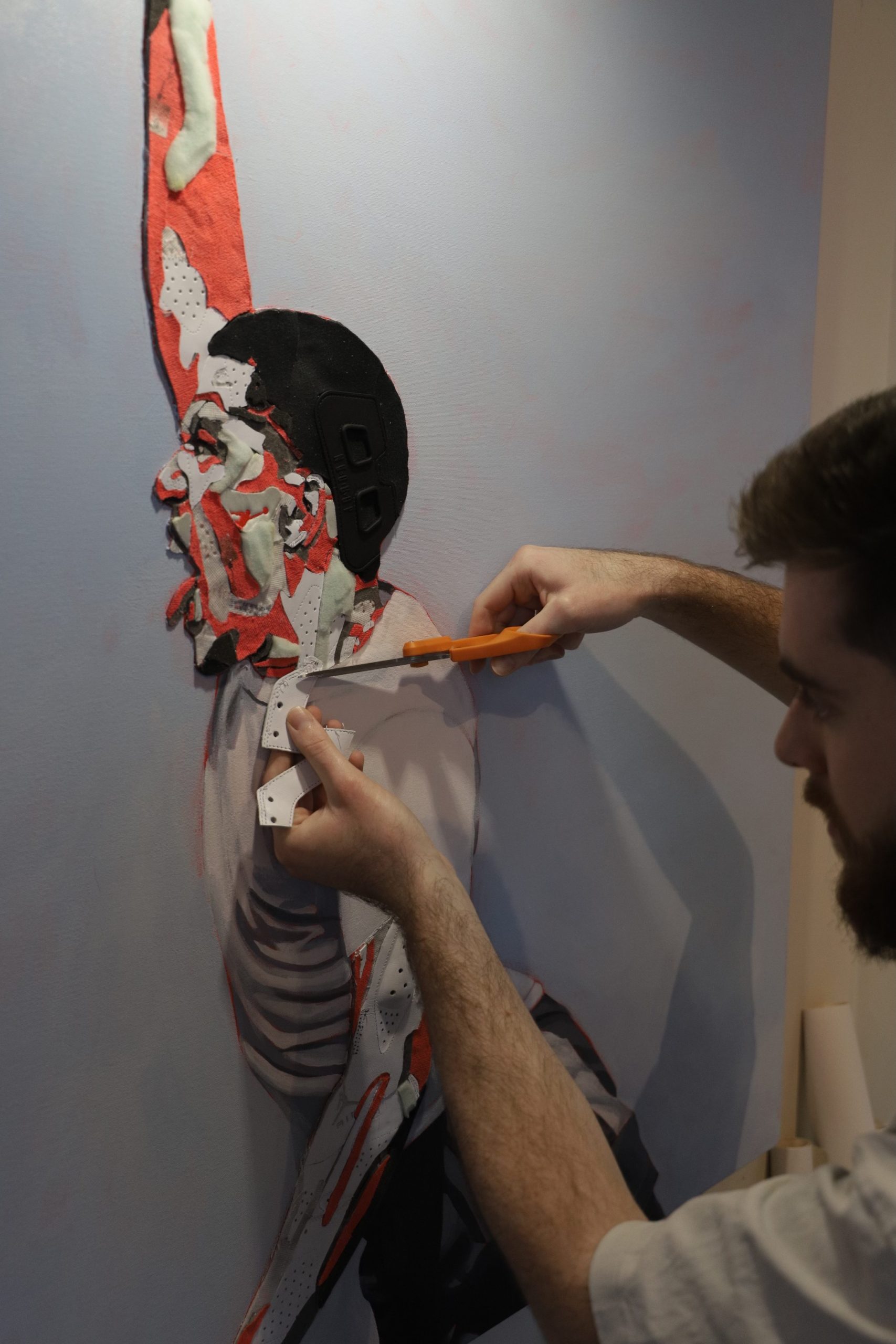
Curtis: Where does basketball and hoop culture come into play for you?
JR: I thought basketball was my passion, but really, I just love the culture. If we were playing pickup, I could play really well. But there was something about the structure of the game—I wasn’t really coachable and I didn’t understand the flow of the game. I didn’t remember any of the plays and shit. So like, I’m thinking about some project I could do. Everyone’s thinking about the gameplan and I’m trying to figure out what shoes I’m going to wear.
Curtis: Clearly sneakers are a huge part of the type of art you create today. Where does your love for kicks come from?
JR: My best friend, Mikey. His dad was like this mythological character; he was present in his life, but he lived in Philly, so he would only see him every once in a while. But Mikey would always come back in with some Jordan’s-not Spizikes or what’s in Foot Locker. He would come in with, like, some OG 13s. I was learning and he was always teaching me about shoes. This is when I realized I really enjoyed design-picking out colors and things like that. We went to Sneaker Con and we saw them painting shoes in a contest. Mikey was like, ‘Justin, you can do this better than all of them.’ And I remember Mikey surprised me one day. He convinced his dad to buy me an airbrush and then he brought me these Military Blue 4s and he’s like, ‘Bro, paint these for me.’ We were so excited, we didn’t even wait. It was like 11:30 at night. I didn’t even prep them right. You’re supposed to strip everything off, but I got straight to it. I remember Mikey wore them like two or three times and they were chipping off on the side. I love him because he was trying to support me, but he would get straight clowned for wearing them. I painted like maybe two more pairs of shoes, but then I saw I could paint on a canvas and sell that for like for like $350.
Curtis: How did you get into your artistic style of cutting up sneakers and putting them back together in a collage-style painting?
JR: I never really liked painting landscapes or animals or anything. I loved figures and I would draw basketball players and stuff. And I was into rappers. This was my first attempt at getting people’s attention. And then, like, doctors and lawyers started liking it. Because everybody is a part of this culture. I could have a rich doctor put my work on their wall, but I can also have people who never seen a piece of art love it and be moved by it. I can move somebody in the trenches and I can move somebody in first class. It was the first time I felt powerful. Like, ‘Damn, I can really make some type of impact.’
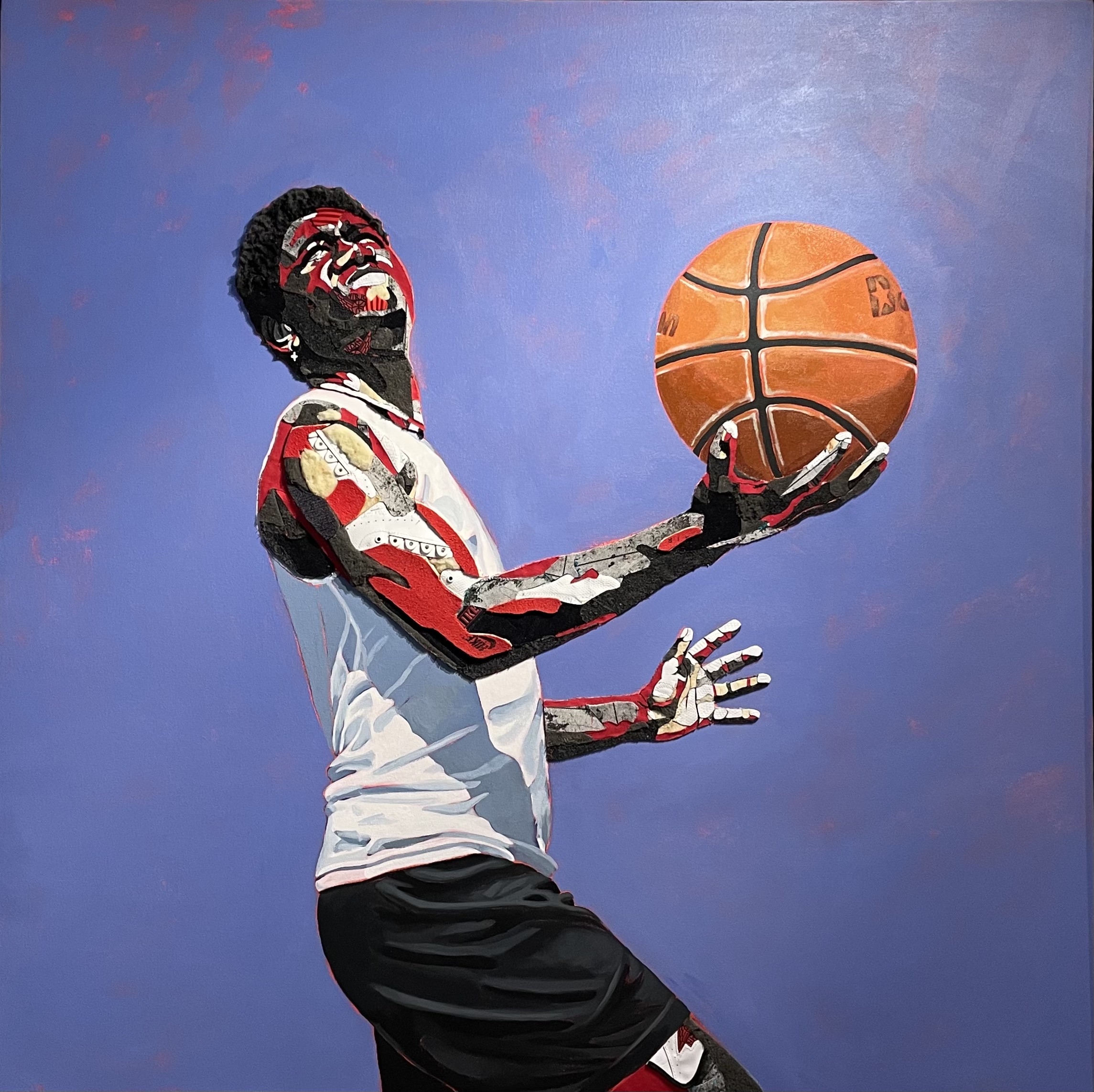
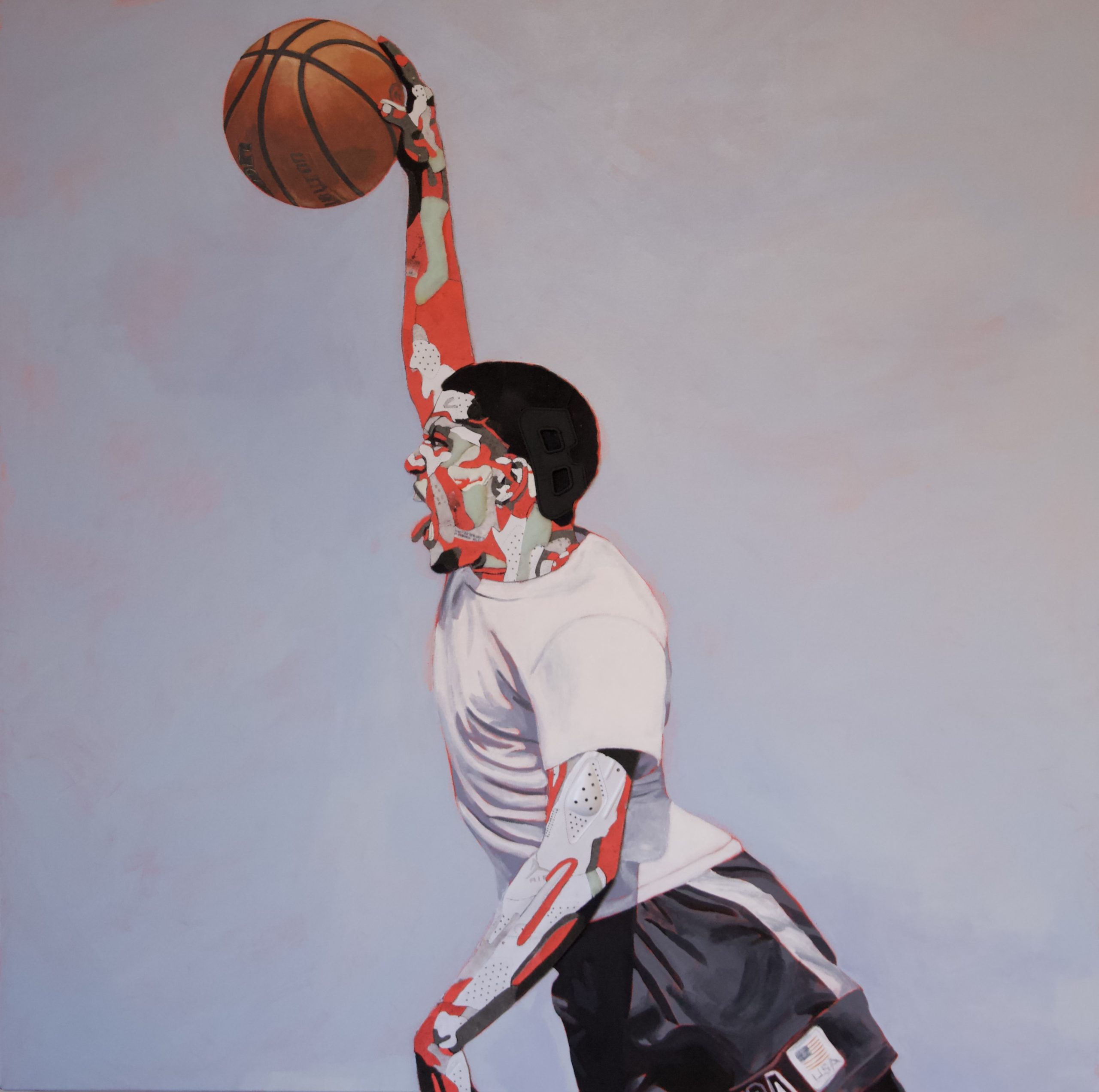
Curtis: Hip-hop is a huge component of this column and you mentioned being into rappers. Do you listen to music while you’re creating art? How does hip-hop inspire you?
JR: I remember when I first discovered Lil Wayne. Lil Wayne is still like my favorite character. He kind of really really pushed me into liking rap. I listen to all music. It really depends on what mood I’m in. It’s more of how it makes me feel in the moment. Sometimes, it depends on the piece I’m working on. If I’m in a mode where I have to work for 15 hours in a day, I’ll start out slow and graduate to something more high energy. But I listen to majority rap, for real. Obviously, Drake has been one of my favorites-obviously J. Cole and Kendrick. There was a point in time where I would only listen to Kendrick. And now I really been listening to R&B and stuff. I really love Bryson and Brent. I feel like they’re constantly comparing who’s best and stuff, but it’s like everybody has separate contributions.
Curtis: There’s a big misconception about the relationship between artists and galleries. What does it mean to you when you have your work showing in galleries?
JR: When I first started, that was the ultimate goal. Having your work in a gallery is like getting drafted. When your work is on a legit wall and you see it there, and they’re having an opening-it feels like I’m legit now. Like, I’m a professional. At first, you’re like a typical starving artist and you just want to pay your bills. But then once you get past that point, it’s like, ‘I’m going to be someone.’ It’s not about the money, it’s about contributing. To the culture, to like the society. You have people messaging you like, ‘This shit changed my life.’ Showing your work in galleries is dope, especially when you find a dope gallery and they’re actually a legit gallery.
Curtis: Where do you want to take your career? What does success in this crazy and evolving art world look like to you?
JR: I feel like it’s changed. I had goals last year-I hit some of them, I missed some of them. But right now, I haven’t really been setting goals. I just want to contribute whatever I wake up that day feeling like. A lot of times, I make these detailed plans and one little thing will get delayed, and then this thing gets messed up and this other thing falls through and then this new opportunity comes. So I’ve just been living in the moment. My goal is just to make better work, great work, amazing work and reach people.
Photos via Alex Yarrish
As always, here’s the official Hoops, Rap and Everything Black playlist. It’ll be updated weekly with each column. Add the playlist to your library to stay in the know, and be sure to follow SLAM on Spotify.
The post Hoops, Rap and Everything Black: Artist Justin Ruby Cuts Up Your Favorite Kicks to Make Stunning Basketball Portraits appeared first on SLAM.






